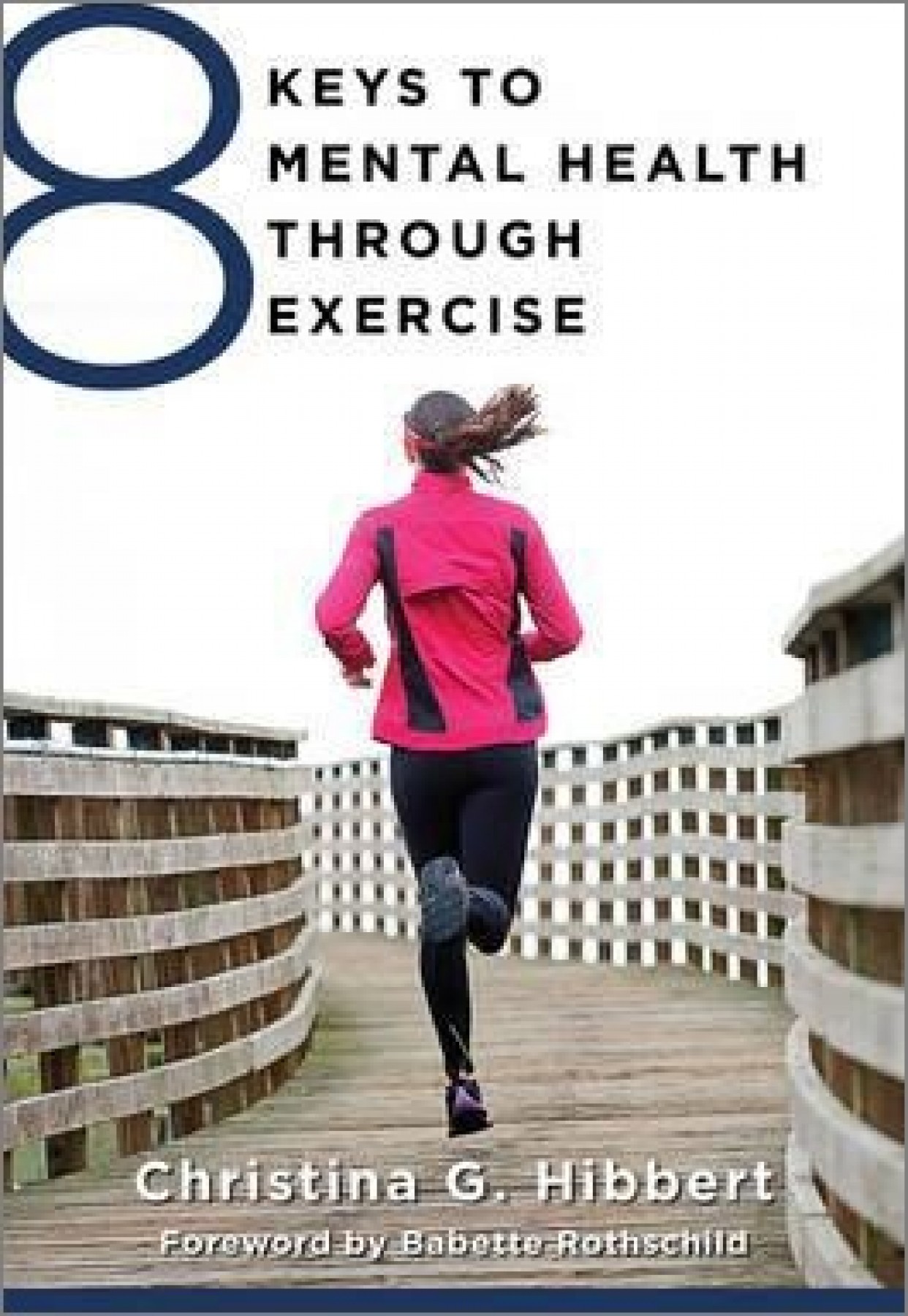Well-crafted and easy to read, Eight Keys to Mental Health through Exercise is for everyone from the exercise-averse couch dweller to the toned, tight and tirelessly devoted fitness fanatic.
Written by Christina G. Hibbert, a clinical psychologist, mum, author of other self-help books and exercise enthusiast, Eight Keys pre-prepares, prepares and then eases you ever so gently into the idea of regular exercise.
Hibbert begins by clearly explaining the evidence surrounding exercise and wellbeing, even breaking down the benefits for each particular mental health condition. The bottom line: exercise is amazing for the mind and body. Why, then, is it so hard to do?
Well, there’s a series of events that needs to occur before you can actually put your running shoes on and keep putting them on, day after day. Hibbert discusses the principles of cognitive behaviour therapy, habit making and breaking, the mechanics of motivation and self-esteem, and, where needed, the importance of seeking professional advice before you get started.
Each section ends with a series of small worksheets to let you focus and retain what you’ve just read and apply it in a practical way to your own situation.
Real, practical advice
One of the key strengths of Hibbert’s methodology is exploring the complex nature of health conditions and the associated barriers to exercise. For example, if you live with obsessive-compulsive disorder, or have experience with panic attacks or anxiety, exercise can actually freak you out, big time.
When you think about the sensations of intense exercise, such as shortness of breath, sweating and heart pumping, it’s easy to see how similar it is to panic. Hibbert offers less strenuous alternatives, like yoga, where you can still reap the benefits of exercise without panic.
She also sensibly deals with the myriad of physical roadblocks that come with other chronic illnesses, age and disability. Hibbert does her utmost to inspire you that any kind of movement is great, even if it starts with walking to your letterbox and back, or boogying to your favourite tunes while doing the housework.
Terminology trouble
Overall, I found the book fascinating and enjoyable, but the lexicon sometimes bogged me down. Using terminology such as “suffering” with depression, or anxiety, really rubs me the wrong way and Hibbert overuses it.
What’s more, such words go against the grain when mental health messaging focuses so strongly on combating stigma by trying to teach the world that living with mental illness is not a sign of weakness. Describing someone as a sufferer of any mental illness is hardly empowering.
But don’t let that put you off, there’s plenty to gain from reading Eight Keys. Even if, like me, you are already an exercise convert, you will not only feel empowered by reading this book, but also motivated to dig deeper when it comes to fully realising exercise’s potential.
Reviewed by Lucy Ratcliffe, Communications Consultant at Healthy Communications

